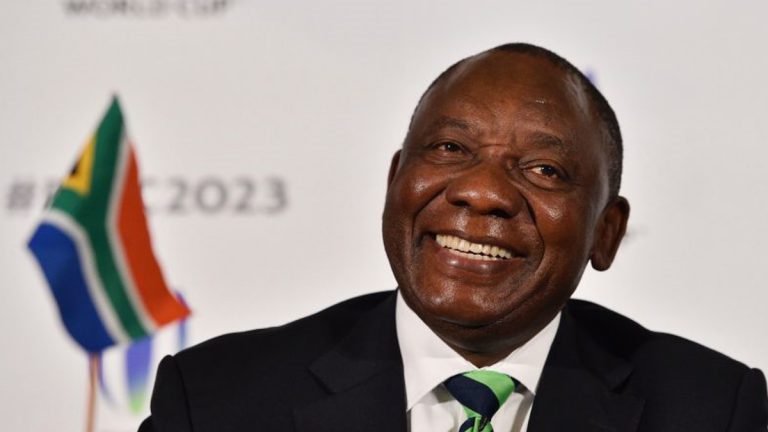
Tonight, President Ramaphosa addressed the nation and announced that as of 1 June the country will move to level 3 of lockdown.
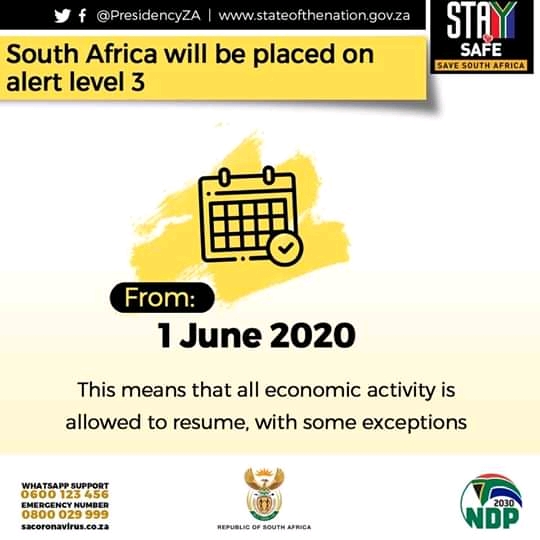
It has been 10 weeks since a national state of disaster was declared. Since then, the amount of COVID-19 cases has escalated. The country’s numbers currently are: 22,583 confirmed cases of which at least half have recovered and 429 people have died. That means that there are just over 11,000 active coronavirus cases: 842 patients are in hospital and 128 of these are in intensive care.
The President announced that over 580,000 coronavirus tests and more than 12 million screenings have been conducted. 60 000 Community health workers have been going door-to-door.
“Government is supporting and funding several research projects, including a plan to locally manufacture coronavirus vaccines as soon as candidates are available. We will use the skills, expertise, infrastructure and organisations within the vaccines industry to produce and distribute the vaccine,” the President said.
He continued: “We have argued that should a vaccine be developed anywhere in the world it should be made freely and equitably available to citizens of all countries.”
Changes from Level 4 to Level 3:
- People will also be able to leave their homes to buy goods or obtain services including medical care.
- People will also be able to exercise at any time during the day, provided this is not done in groups.
- The curfew on the movement of people will be lifted.
- Alcohol may be sold for home consumption only under strict conditions, on specified days and for limited hours.
- Announcements in this regard will be made once we have concluded discussions with the sector on the various conditions.
- The sale of tobacco products will remain prohibited in alert level 3 due to the health risks associated with smoking.
- All gatherings will remain prohibited, except for funerals with no more than 50 people or meetings in the workplace for work purposes.
- Any place open to the public where cultural, sporting, entertainment, recreational, exhibition, organisational or similar activities may take place will remain closed.
The President said that meetings with “leaders of the interfaith religious community on their proposals for the partial opening of spiritual worship and counselling services subject to certain norms and standards.”
Businesses that may open must be vigilant in complying with the COVID-19 protocols the government has put in place. Before opening, a workplace plan must be developed. These plans must include the sanitisation of the business and social distancing between staff and customers. These sector protocols will include screen workers on arrival each day, quarantine those who may be infected and arrange for the employees to be tested.
The President suggested that all staff who are older than 60 years of age and those who suffer from underlying conditions such as heart disease, diabetes, chronic respiratory disease and cancer should ideally stay at home and if you can work from home to do so.
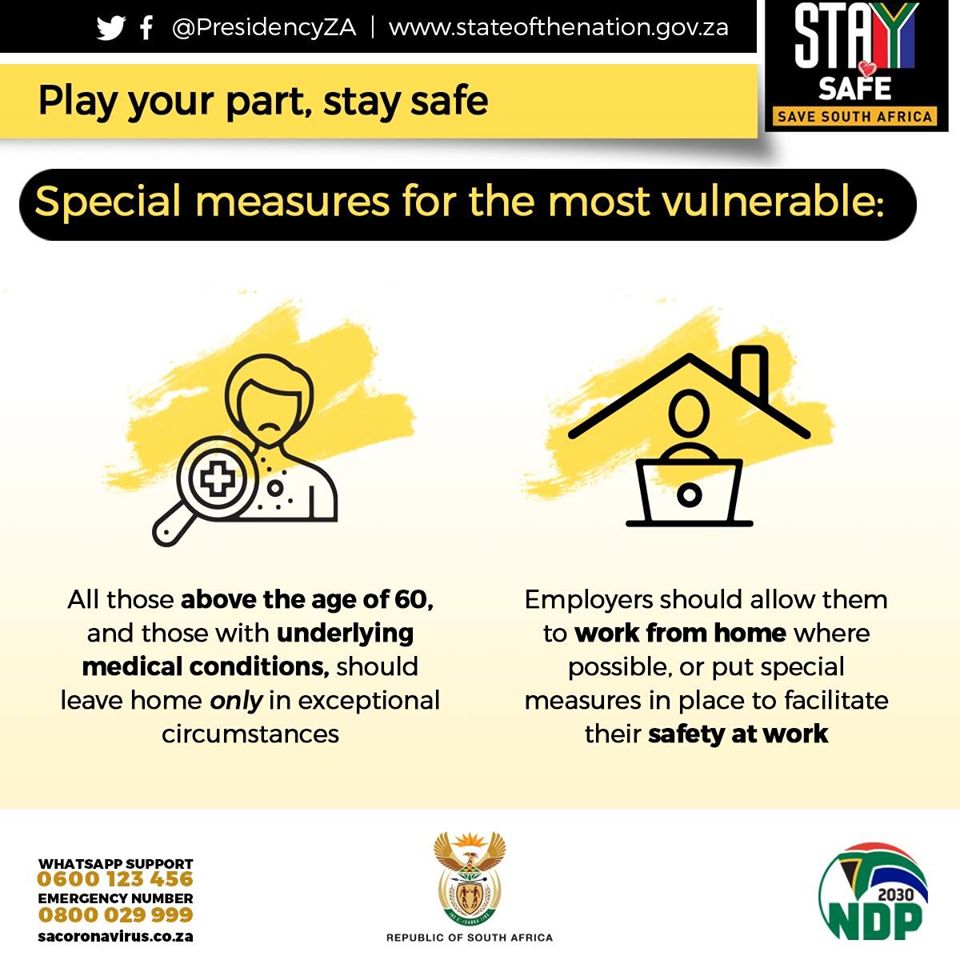
He continued: “…all manufacturing, mining, construction, financial services, professional and business services, information technology, communications, government services and media services will commence full reopening from 1 June.”
The wholesale and retail trade will be fully opened, these include stores, spaza shops and informal traders. E-commerce will continue to remain open.
“Other sectors that opened previously, such as agriculture and forestry, utilities, medical services, food production and manufacture of hygiene products, will remain fully opened.”
Certain activities will remain prohibited:
- Restaurants, bars and taverns, except for delivery or collection of food.
- Accommodation and domestic air travel, except for business travel, which will be phased in on dates to be announced.
- Conferences, events, entertainment and sporting activities.
- Personal care services, including hairdressing and beauty services.
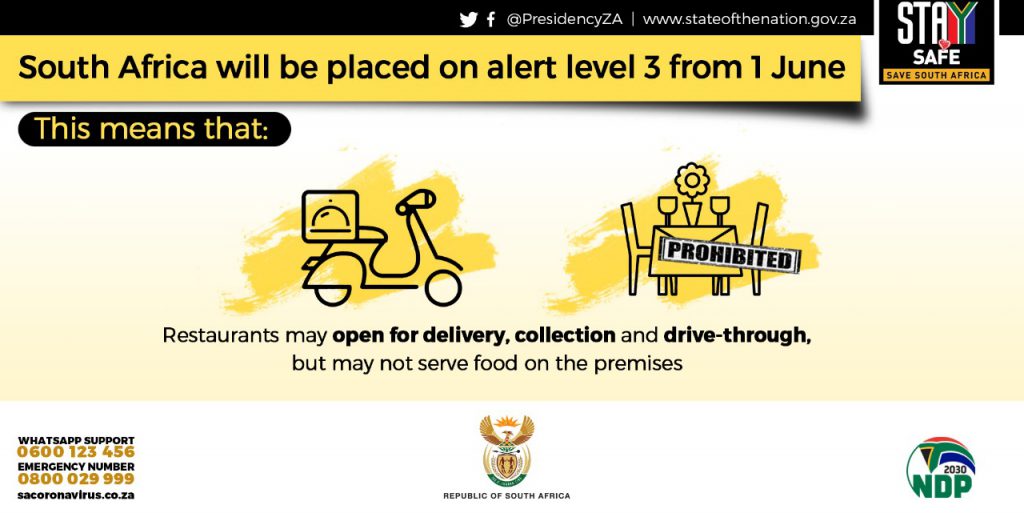
https://www.facebook.com/PresidencyZA/ 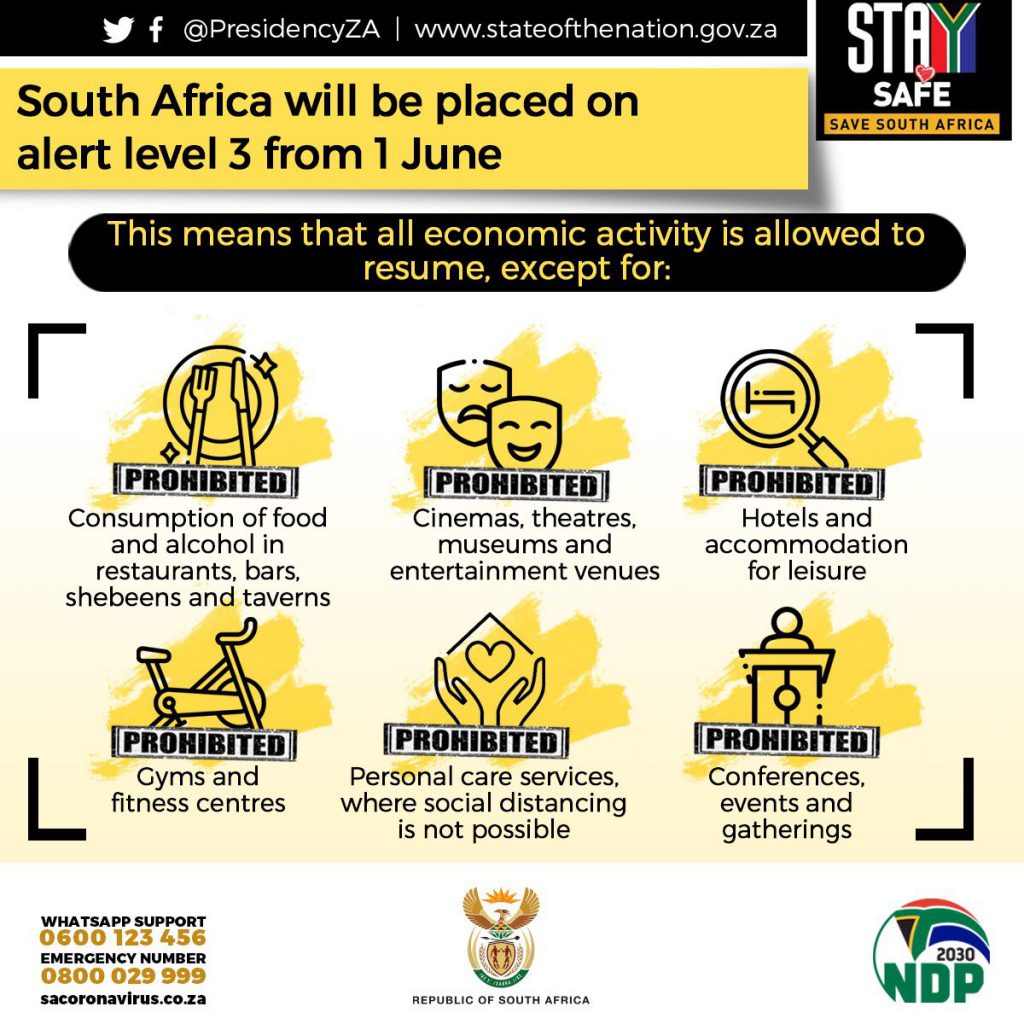
Mask will stay compulsory especially for those who make use of public transport.
The President also spoke about the phasing back in of schools.
“Strict infection control measures and, where necessary, additional water and sanitation infrastructure are being put in place to enable social distancing, regular hand washing and learner safety.”
He also said that the 2020 school calendar year will be revised.
No more than a third of university students will be allowed to return to campuses.
It seems that the President’s precautionary measures are falling in to place and that South Africa is fighting this disease together.